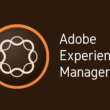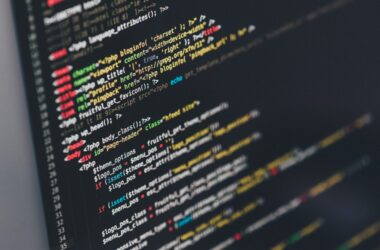Introduction:
I have been inundated with numerous inquiries from individuals eager to learn programming without a computer science degree. After hearing the same question repeatedly, I felt compelled to compile this comprehensive article that summarizes the essential steps required to succeed in this endeavor. whether you come from a non-technical background or simply have a passion for coding, this guide aims to provide a roadmap that will empower you to navigate the world of programming with confidence and achieve your goals.
In today’s technologically driven world, programming skills have become increasingly valuable and sought after. However, many individuals with non-computer science backgrounds often wonder if it’s possible to learn programming effectively. The good news is that studying programming without a computer science background is not only possible but also a rewarding journey that can open up numerous opportunities. In this blog post, we will explore the steps and mindset required to embark on this path and succeed.
Steps and Mindset Required
Embarking on the journey of studying programming without a computer science background requires a combination of practical steps and a supportive mindset. In this section, we will explore the essential steps to follow and the mindset to adopt in order to effectively learn programming from scratch. By embracing a proactive approach and cultivating the right mindset, you can overcome challenges, and build a solid foundation in programming, and pave the way for a successful journey into the world of coding.
Embrace the Learning Curve:
It’s important to acknowledge that learning programming without a computer science background may pose some challenges. However, with determination and a positive mindset, you can overcome these obstacles. approach the learning process with an open mind, and be prepared to invest time and effort into building your programming knowledge from the ground up.
Start with the Basics:
Begin by leaning the fundamentals of programming. Concepts such as variables, data types, loops, and conditional statements are universal across programming languages. online platforms and resources offer interactive tutorials and courses specifically designed for beginners. take advantage of these resources to gain a solid foundation in programming concepts.
Choose an Approachable Language:
Selecting a beginner-friendly programming language can greatly facilitate your learning journey. Languages like Python, JavaScript, and Ruby are often recommended for beginners due to their readability and extensive community support. These languages offer vast libraries and frameworks, making it easier to start building practical applications sooner.
Focus on Practical Application:
Programming is a skill best learned through hands-on practice. As you gain basic knowledge, start working on small projects or coding exercises that apply what you’ve learned. Practical application not only reinforces your understanding but also helps develop problem-solving and critical thinking skills, essential for programming success.
Leverage Online Resources and Communities:
The internet is a treasure trove of programming resources. Join online communities, forums, and coding platforms to connect with fellow learners and experienced programmers. These communities often provide valuable guidance, code reviews, and opportunities for collaboration. Additionally, online learning platforms such as Udemy, Coursera, and Codecademy offer comprehensive courses tailored for beginners.
Seek Additional Learning Materials:
Supplement your learning with books, tutorials, and online courses that delve deeper into programming concepts. Explore topics such as algorithms, data structures, and design patterns to enhance your understanding and problem-solving abilities. Remember to balance theory with practical implementation to solidify your skills.
Build a Portfolio:
As you progress, create a portfolio showcasing your projects and coding accomplishments. Employers and potential collaborators often evaluate programmers based on their practical experience. Building a portfolio demonstrates your dedication, skills, and ability to apply programming concepts to real-world scenarios.
Network and Collaborate:
Attend meetups, conferences, and coding events to network with professionals in the field. Engaging with like-minded individuals can provide valuable insights, mentorship opportunities, and potential job prospects. Collaborating on open-source projects or participating in hackathons can also enhance your skills and expand your professional network.
Embrace Lifelong Learning:
Programming is a constantly evolving field, and staying up to date with new technologies and frameworks is crucial. Embrace the mindset of lifelong learning and dedicate time to explore new concepts and advancements in the programming world. Continual growth and adaptability will keep you competitive and open doors to exciting opportunities.
Conclusion:
While studying programming without a computer science background may present its challenges, it is definitely achievable with the right approach and mindset. Embrace the learning curve, start with the basics, focus on practical application, leverage online resources and communities, build a portfolio, network, and never stop learning. With persistence and dedication, you can acquire programming skills that will empower you to pursue a fulfilling career in the tech industry, regardless of your background.
We value your input and encourage you to share your thoughts and experiences regarding learning programming without a computer science background. we believe in the power of collective knowledge and would love to hear your perspectives, questions, and success stories. feel free to leave a comment below and join the conversation. Your insights may inspire and support others who are embarking on a similar journey. Let’s create a vibrant community of learners and programmers by engaging in meaningful discussions together!









